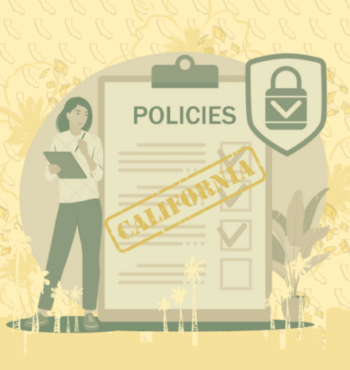How to use our email marketing privacy policy template
- Replace any [placeholder text], with your specific details.
- Ensure that your privacy policy accurately reflects your data collection and usage practices and complies with the laws relevant to your business.
- Regularly review and update your privacy policy to stay compliant with evolving regulations.
- It’s advisable to seek legal counsel to customize this template to your specific circumstances if you want to ensure full compliance.
The better way to create a privacy policy
While using a template is a perfectly acceptable way to create a privacy policy, you can never be sure of compliance. A privacy policy generator will get the job done in a fraction of the time and with less room for human error.
If you like simplicity, give ours a go. After asking you a few quick questions, our generator will create any of the legal document’s your business requires.
- Privacy policy✅
- Terms and conditions✅
- EULA✅
- Cookie policy✅
Trusted by 500k customers. Unlimited policy edits. 100% money-back guarantee.
Try our privacy policy generator
Third-party Email Clients’ Privacy Policy Requirements
If you utilize a third-party service for your marketing emails or newsletters, they likely demand you to have a privacy policy in place to use their platform, ensuring compliance with relevant data privacy laws. To align with regulations like the GDPR, it’s crucial to link to third-party privacy agreements within your email marketing clause, ensuring users are informed about every service accessing their data.
Frequently Asked Questions
Here are some common questions about email marketing and data privacy:
- Do I need a privacy policy for emails?
Yes, it’s required by law and by third-party email services if you send marketing emails.
- Does the GDPR apply to emails?
Yes, if your business falls under its jurisdiction, you need user consent before sending marketing emails.
- What are the GDPR rules about emails?
Under GDPR, you must get user consent before sending marketing emails. You also need to identify your company, provide contact info, offer an opt-out link, and include a privacy policy link in your emails.
- How can I ensure GDPR compliance in my email campaigns?
Get explicit consent from users before sending marketing emails, avoid pre-checked consent boxes, and offer clear options to unsubscribe.
- What should my email marketing privacy policy cover?
It should include the types of data collected, purposes of data use, sharing practices, opt-out instructions, and contact info for your company.

